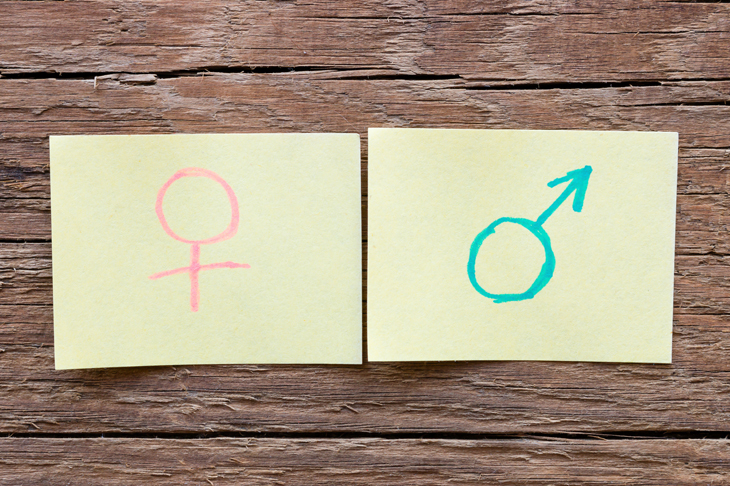The BBC recently pulled out of the Workplace Equality Index and Diversity Champions – a UK LGBTQ+ scheme put on by the Stonewall charity.
They’re the latest of a number of UK organizations withdrawing, including the Equality and Human Rights Commission and the House of Commons. Public scrutiny of Stonewall’s functioning as a lobby group and its exercising of alleged inappropriate influence on public bodies has increased after the BBC released the podcast series Nolan Investigates: Stonewall in October, after an 18-month investigation.
The blog Legal Feminist, a collective of practising barristers and solicitors, describes Stonewall as ‘an astonishingly audacious, skillful and successful operation’.
Organisations pay them for training, and membership into a scheme that ‘wins you the privilege of being patronisingly congratulated and sanctimoniously nagged about how well you’ve absorbed and implemented that training’. They also pay to complete a ‘lengthy open-book examination’ on how well they’ve implemented Stonewall’s training – all in the hope of being listed as a top-100 employer in the Workplace Equality Index.
Still, that’s all happening in the UK and doesn’t have anything to do with us in Australia. Right?
Wrong.
ACON, originally an HIV/AIDS charity based in New South Wales (and now arguably an LGBTQ+ lobby group), administer the Pride in Diversity scheme, which in turn administers the Australian Workplace Equality Index.
It’s right there on the AWEI homepage that the Index ‘originally drew from the rich experience, expertise and methodology of the Diversity Champions Workplace Equality Index published by Stonewall in the UK’. Just as in the UK, large numbers of Australian organisations and public bodies submit to this index, with the ABC, Dentons, the University of NSW, and Deloitte all receiving awards in 2021.
This might not be so bad if LGBTQ+ inclusion simply meant making sure that LGBTQ+ people were not excluded from the workplace and not subject to discrimination within the workplace.
But the AWEI embeds a particular ideology, one that believes sex is ‘designated’ – rather than observed – at birth; that genders are ‘assigned’ at birth; that all people have ‘gender identities’ which ought to be affirmed by others; that using sex-based pronouns instead of identity-corresponding pronouns is ‘misgendering’; and finally, that excluding someone on the basis of their sex or believing they should not use the bathroom of the opposite sex is ‘transphobia’ which may count as workplace discrimination.
In the AWEI accreditation forms for 2022, employers are asked to introduce policy specifically for ‘gender affirmation’ and encouraged to call it ‘affirmation’ rather than ‘transitioning’ (5 points). They are also told to offer ‘gender neutral’ or ‘all gender’ bathrooms and not call them ‘unisex’ (4 points); to employ grievance officers (3 points); and to communicate information for the reporting of LGBTQ+ bullying/harassment complaints (2 points).
All of this goes a long way to explaining what is going on with the University of Melbourne, which recently published a Gender Affirmation Policy nearly five months after their draft version made international news thanks to a clause indicating they would refuse to host events or allow public discourse that might ‘harm’ the campus trans and gender diverse community.
The university did remove this clause from the policy, but they didn’t move it far. Associated new ‘Guidelines for the Appropriate Exercise of Freedom of Speech’ state that public events and public discourse can be refused on the basis of staff and students’ ‘safety and wellbeing’. This extends to refusing to let particular people speak on university property, refusing to let university facilities be used for particular speakers or events, and refusing to allow an activity or event to be hosted at the university.
The policy welcomes trans and gender diverse students to ‘use the [bathroom] facilities they choose as the most appropriate for them’. That marks an end to sex-segregated bathrooms on campus.
It will be interesting to see how the university handles the tension between this aspect of the Gender Affirmation Policy, and its new Sexual Misconduct Prevention and Response Policy. The latter includes ‘following, watching or loitering nearby someone’. If a male student, who has been sexually harassing a female student, then follows her into the female bathroom – can he escape disciplinary action by claiming to sometimes use ‘they/them’ pronouns? After all, as the Gender Affirmation Policy makes clear, ‘There is no requirement for any person to inform the University of their intention to affirm their gender.’
The policy also refers to a newly created position of Senior Adviser (Gender Affirmation) to be the contact point for gender affirmation at the university. Whoever is hired into the role will spend their time helping trans and gender diverse staff and students make complaints about other members of the university community; responding to threats to trans and gender diverse students’ ‘psychological safety’; and attempting to change the university’s ‘systems, processes and environments’ to make them more ‘inclusive’.
Critics have pointed out the hypocrisy of the university cutting 450 jobs last year, and now offering a six-figure salary for this position. After nearly two years of Covid and being relegated to learning and interacting by Zoom, students across the university are in desperate need of support services. So why is a dedicated position being created for such a small group of students? As far as I am aware, there are no dedicated positions, and no dedicated policies, for any other minority group on campus.
To put all this another way, the university is on track to do well in the 2022 AWEI. That this comes at the cost of single-sex spaces, compelled speech, a potential threat to academic freedom, and the potential chilling of speech on campus for fear of disciplinary measures, appears not to matter. Public bodies in the UK are realising that their alignment with Stonewall compromises their impartiality and undermines public trust.
When will Australian bodies, including the University of Melbourne, do the same?
Holly Lawford-Smith is an Associate Professor in Poalitical Philosophy at the University of Melbourne.
Got something to add? Join the discussion and comment below.
Get 10 issues for just $10
Subscribe to The Spectator Australia today for the next 10 magazine issues, plus full online access, for just $10.

























Comments
Don't miss out
Join the conversation with other Spectator Australia readers. Subscribe to leave a comment.
SUBSCRIBEAlready a subscriber? Log in